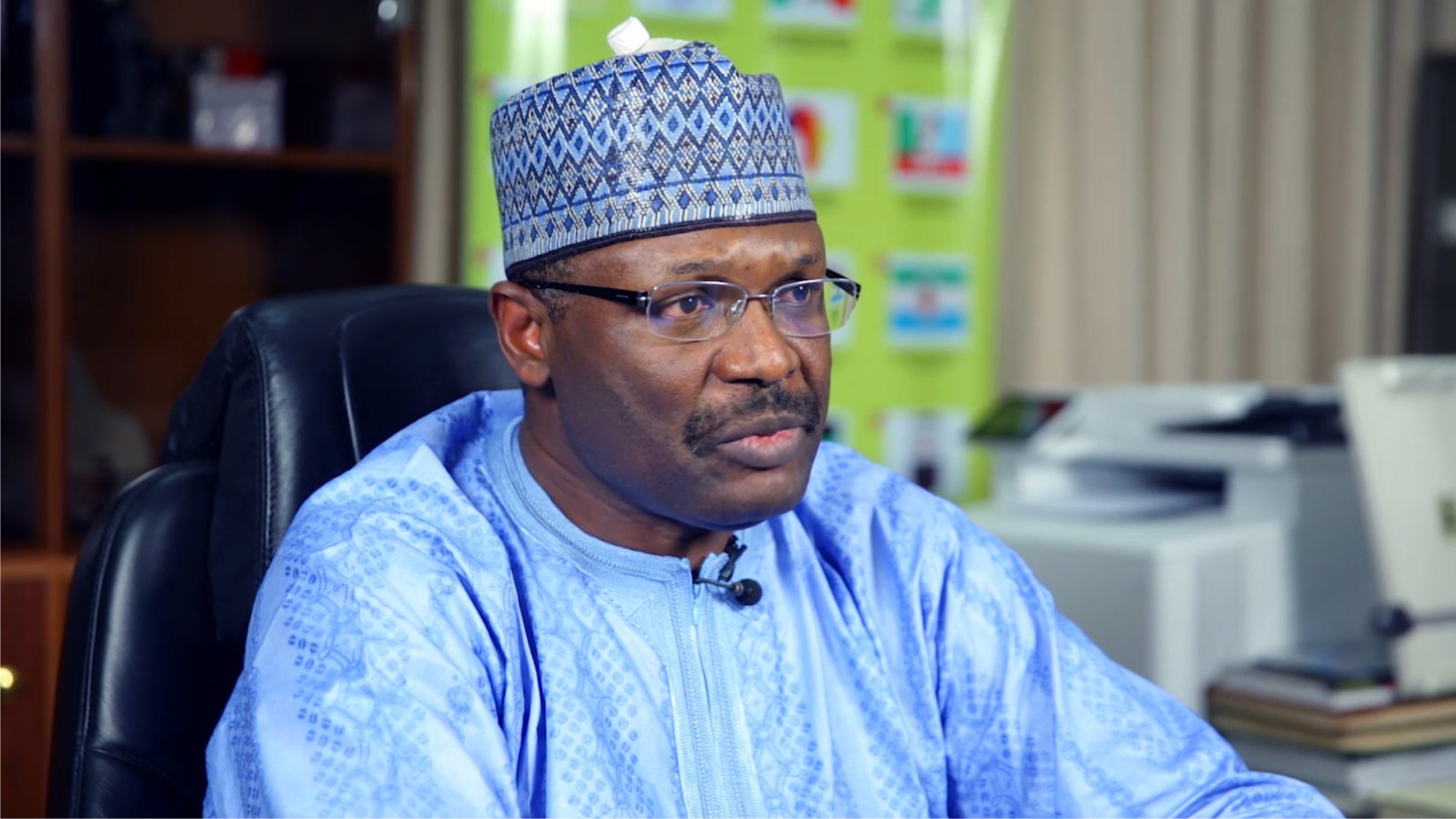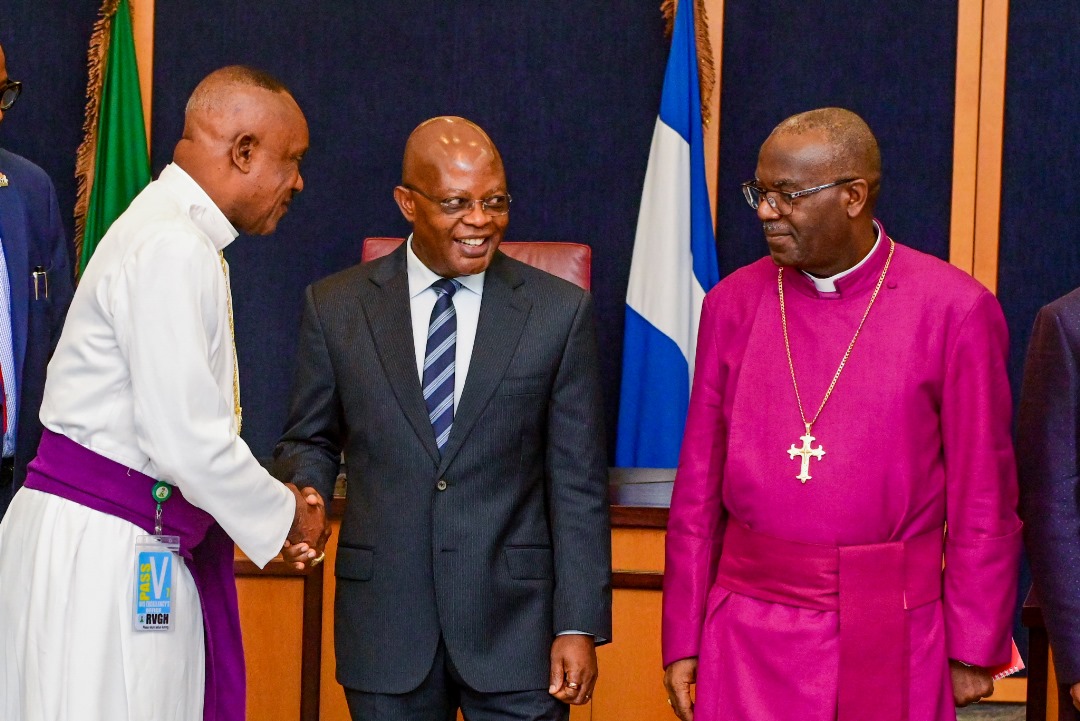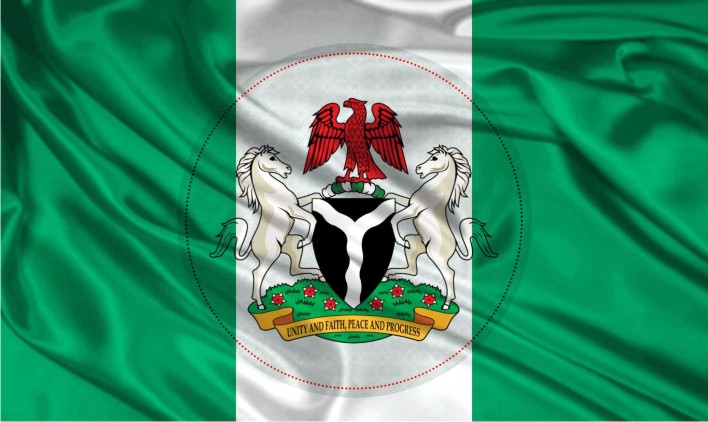Featured
Political Parties Must Submit Regular Audit Reports To INEC -CSO

The Electoral Forum, a Civil Society Organisation (CSO), has urged the Independent National Electoral Commission(INEC) to compel political parties to present regular audit reports of their accounts, in line with the provisions of the law.
This is contained in a communiqué issued and signed by Prof. Adebayo Olukoshi, the Chairman, The Electoral Forum, at the end of the 7th Technical Session of the organization on Thursday in Abuja.
Olukoshi said that INEC must also publish the audit reports after receiving them.
He said that the forum expressed various concerns about elections in Nigeria and recommended strategies to improve the electoral process, ahead of the 2023 general election.
“Having agreed that consolidation of democracy involves widespread compliance with rule of law to guarantee a level playing field for candidates in elections, The Electoral Forum hereby recommends as follows:
“Engagement of INEC on the proper placement of voting cubicles during the election to ensure the secrecy of the ballots, in line with global integrity standards and best practices.
“INEC should train ad hoc staff on the proper placement of the voting cubicles to ensure secrecy of the ballot and privacy in relation to the positions of party agents during the voting process.
“The National Electoral Offences Commission should be an independent body and should not be subject to the Attorney General,” Olukoshi said.
He said also urged INEC and anti-graft agencies to ensure that there was compliance with the provisions of the law on campaigns.
He said the media should aid in boycotting negative news, hate speeches and ensure balanced coverage.
He added that mainstream and social media should be use to curb misinformation, disinformation and the issues pertaining to the misuse of media during the electioneering period.
He called for the revival of strategies and alliances by CSOs like before and which brought the changes in the electoral process between 1999 -2010 the first 10 years of democracy in Nigeria.
Olukoshi said that taskforce by citizens and CSOs should be formed to enable Nigerians to protect their mandate where necessary.
He called on CSOs to blow the whistle where the political classes use state resources for campaigns or personal gain.
He added that CSOs should also focus on the holistic agenda of good governance and not only on good elections as both were equally critical.
Olukoshi expressed concerns about the Electoral Offences Commission being subjected to the Attorney General of the Federation as this may lead to impunity at the highest level.
He called for policy-based and issue-based campaigns, eschewing hate speech in all its ramifications and that campaigns should target real issues facing the country with facts and figures.
He added that politicians should ensure that messages passed during campaigns were violence-free and impact positively on the audience.
“ In addition, banks and anti-corruption agencies such as ICPC and EFCC should be fully involved in monitoring campaigns and the electioneering period, and the media should spotlight more on policy-based campaigns by candidates and parties,’’ he said.
Olukoshi underscored the importance of security in the electoral process and emphasised that peaceful and credible elections could only be possible through close collaboration between INEC and the security agencies.
He also appreciated the initiatives of INEC such as the establishment of the Inter-Agency Consultative Committee on Election Security (ICCES) and identification of high-risk or flashy areas using electoral risk tools.
He named the tools as: the Election Violence Mitigation and Advocacy Tool (EVMAT), and the creation of voting centres for Internally Displaced Persons (IDP) to ensure inclusivity for voters’ like people displaced due to insurgency.(
Featured
FG To Seize Retirees’ Property Over Unpaid Housing Loans

The Federal Government Staff Housing Loans Board says it has begun the compilation of list of retired civil servants who have defaulted on the full repayment of housing loans obtained.
Head of Information and Public Relations, FGSHLB, Mrs Ngozi Obiechina, disclosed this in a statement in Abuja, yesterday.
Obiechina quoted the Executive Secretary of the Board, Mrs Salamatu Ahmed, as saying that the move was aimed at recovering mortgaged properties from retirees who failed to meet their loan obligations.
Ahmed noted that the decision followed a recent memo issued by Mrs Patience Oyekunle, Permanent Secretary, Career Management Office, Office of the Head of the Civil Service of the Federation.
According to her, the memo reminded public servants of the mandatory requirement to obtain a Certificate of Non-Indebtedness to the FGSHLB and MDA Staff Multipurpose Cooperative Society as a precondition for retirement.
The Executive Secretary said that the board would take necessary legal steps to repossess properties where applicable, in line with the terms of the loan agreements.
She said this was in line with the provisions of the Public Service Rules 021002 (p), issued by the Office of the Head of the Civil Service of the Federation.
“I am directed to bring to your attention the provision of Public Service Rule (PSR) 021002 (p), which mandates all public servants to obtain a Certificate of Non-Indebtedness as a prerequisite for retirement.
“The Federal Government will commence the seizure of mortgaged properties belonging to retiring federal public servants who have failed to fully repay housing loans obtained from the board,” she said.
Ahmed explained that the FGSHLB reserves the legal right to repossess any mortgaged property in cases where a public servant exits service without fully repaying the loan.
She reiterated that the directive also applied to already retired officers who were still indebted.
She urged all affected public servants to regularise their loan status and obtain the required clearance certificate without delay.
“The board is currently compiling a list of such retirees, which will be forwarded to relevant regulatory agencies for debt recovery.
“The FGSHLB remains committed to enforcing compliance and ensuring proper loan recovery procedures are followed, “ she added.
Featured
FG Begins Induction For New Permanent Secretaries, Accountant-General

The Federal Government has kicked off a three-day induction programme for newly appointed Permanent Secretaries and the Accountant-General of the Federation, aimed at equipping them for strategic leadership and effective policy implementation.
The induction, according to a statement yesterday by the Director, Information and Public Relations, Federal Ministry of Information and National Orientation, Eno Olotu, which commenced on Wednesday, is being held at the National Counter Terrorism Centre in Abuja.
Speaking at the opening session, the Head of the Civil Service of the Federation, Mrs. Didi Esther Walson-Jack, congratulated the new appointees and described their roles as pivotal to governance and national development.
“Permanent Secretaries are the engine room of the government. They are critical to driving policy implementation, institutional performance, and reform across the service”, she said.
The Federal Government has kicked off a three-day induction programme for newly appointed Permanent Secretaries and the Accountant-General of the Federation, aimed at equipping them for strategic leadership and effective policy implementation.
The induction, according to a statement yesterday by the Director, Information and Public Relations, Federal Ministry of Information and National Orientation, Eno Olotu, which commenced on Wednesday, is being held at the National Counter Terrorism Centre in Abuja.
Speaking at the opening session, the Head of the Civil Service of the Federation, Mrs. Didi Esther Walson-Jack, congratulated the new appointees and described their roles as pivotal to governance and national development.
“Permanent Secretaries are the engine room of the government. They are critical to driving policy implementation, institutional performance, and reform across the service”, she said.
“The expectations are high, and the responsibility is immense. But with commitment and teamwork, we can deliver a more efficient, accountable, and citizen-centred public service.
“This final lap of FCSSIP 25 calls for urgency, accountability, and strategic focus. You must translate vision into measurable results,” she stated.
In her welcome address, the Permanent Secretary, Career Management Office, Mrs. Fatima Sugra Tabi’a Mahmood, described the programme as a strategic investment in leadership capacity and institutional effectiveness.
The sessions featured expert-led discussions, simulations, and strategic briefings facilitated by a distinguished faculty, including Engr. Suleiman Adamu, former Minister of Water Resources; Dr. Hadiza Bala Usman, Special Adviser to the President on Policy and Coordination; Mrs. Beatrice Jedy-Agba, Solicitor-General of the Federation and Permanent Secretary, Federal Ministry of Justice; Alh. Yusuf Addy, retired Federal Director; Alhaji Bukar Goni Aji, former Head of the Civil Service of the Federation; Amb. Mustapha Lawal Suleiman, Mr. Adesola Olusade, and Dr. Ifeoma Anagbogu, all retired Permanent Secretaries.
Participants include Dr. Obi Emeka Vitalis, Mrs. Fatima Sugra Tabi’a Mahmood, Mr. Danjuma Mohammed Sanusi, Mr. Olusanya Olubunmi, Dr. Keshinro Maryam Ismaila, Dr. Akujobi Chinyere Ijeoma, Dr. Umobong Emanso Okop, Dr. Isokpunwu Christopher Osaruwanmwen, Mrs. Oyekunle N. Patience, Dr. Kalba U. Danjuma, Mr. Nadungu Gagare, Mr. Onwusoro I. Maduka, Dr. Usman Salihu Aminu, Mr. Ogbodo Chinasa Nnam, Mr. Ndiomu Ebiogeh Philip, Dr. Anuma N. Ogbonnaya, Mr. Adeladan Rafiu Olaninre, and Mr. Mukhtar Yawale Muhammed, alongside the Accountant-General of the Federation, Mr. Shamseldeen Babatunde Ogunjimi.
The induction programme will feature sessions on public sector leadership, policy delivery, ethics in service, digital transformation, and performance management.
Featured
NNPCL To Undergo Forensic Audit Soon -FG

The Minister of Finance and Coordinating Minister of the Economy, Wale Edun, has announced that a forensic audit of the Nigerian National Petroleum Company Limited (NNPCL) will begin soon.
Edun revealed this at the ongoing Nigerian Investor Forum, held alongside the IMF/World Bank Spring Meetings in Washington DC.
The minister explained that the recent changes in the NNPCL management are part of a broader effort by the Federal Government to clean up and examine the company closely.
While addressing top global investors, including representatives from J.P. Morgan, Edun shared key reforms the government has introduced to revive the economy and restore investor confidence.
He told the investors that the government’s bold economic steps have laid a strong foundation to attract private investment.
He stated, “Our goal is not just to maintain this momentum, but to accelerate it. We are targeting seven per cent annual growth, and we believe the policies we have implemented have laid the groundwork to achieve this.”
Edun highlighted that President Bola Tinubu’s administration has rolled out major reforms that are already making a difference.
He added that the Nigerian economy grew by 3.84 per cent in the fourth quarter of 2024 and recorded a 3.4 per cent growth for the year.
Edun further stressed the importance of the reforms, describing them as “unprecedented,” adding that, “We said we would do it, and now we have done it. This time, we’re staying the course.”
He pointed out signs of progress such as lower budget deficits, a better trade balance, and a more stable exchange rate.
He also said that the focus is now on growing key sectors, especially agriculture.
According to Edun, agriculture is at the top of the government’s agenda, with the aim of improving food supply and increasing productivity.
“We aim to close the food supply gap, not by importing more, but by enabling domestic producers to scale and innovate,” he said.
On infrastructure, Edun revealed that the government has rolled out 90,000km of fibre optic cable to improve internet access.
He said this move is crucial for supporting young Nigerians and tech startups.
He also noted that 4,000km of roads have been offered for private sector participation, with the first 1,000km already approved for construction.
-
News4 days ago
Army Chief Gives Troops One Month Marching Order To Flush Out Bandits In Niger, Kwara
-

 Nation4 days ago
Nation4 days agoMonarch Preaches Peace As He Unveils Palace
-
Niger Delta4 days ago
Eno Promotes ARISE Coordinator To Perm Sec
-
Business4 days ago
Multipurpose Terminal Hosts 6,606-Foot Capacity Vessel In Onne
-
Politics4 days ago
Speakers Conference Tasks FG, Governors On Wanton Killings
-
News4 days ago
Court Okays Arrest, Detention Of Six CBEX Promoters
-

 Featured4 days ago
Featured4 days agoFG To Seize Retirees’ Property Over Unpaid Housing Loans
-
Niger Delta4 days ago
Diri Okays Ongoing Projects’ Progress

